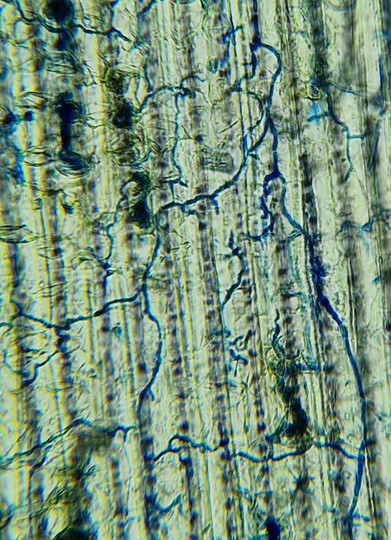Endophytes are microorganisms (primarily fungi and bacteria) that live within plant tissues without causing harm. These symbiotic organisms are increasingly recognised for their potential in sustainable agriculture due to their ability to enhance plant growth, improve stress tolerance, and suppress diseases. Unlike external microbial treatments, endophytes reside within the plant, often forming long-lasting associations that influence plant physiology, immunity, and nutrient acquisition.

In crop production, endophytes can contribute to improved resilience against both abiotic stresses (such as drought, waterlogging, salinity, and nutrient deficiency) and biotic stresses (such as phytopathogens and insect pests). Some endophytes produce bioactive compounds or trigger the plant’s innate immune system, effectively “priming” defences in a manner similar to elicitors. Others help increase nutrient uptake, particularly of nitrogen and phosphorus, or synthesize plant hormones like auxins and cytokinins that promote growth. These functions make them valuable tools towards reducing dependency on fertilisers and pesticides.
Endophytes can be introduced through seed coatings, soil drenches, foliar sprays, or by breeding plants that naturally associate with beneficial endophytes. They are particularly promising for improving the performance of crops under suboptimal conditions and in low-input systems. However, consistent efficacy remains a challenge due to variability in host-endophyte compatibility, environmental factors, and microbial survival during formulation and application. Careful selection of strains and targeted delivery methods are essential for reliable outcomes.
As research and genomic tools advance, scientists are gaining a deeper understanding of how endophytes interact with host plants and the broader microbiome. This knowledge opens the door to designing custom microbial consortia or developing crop varieties optimized for beneficial endophyte colonization. Incorporating endophytes into integrated crop management strategies can reduce environmental impacts, enhance productivity, and support climate-resilient agriculture. With continued innovation, endophytes hold great promise as a core component of sustainable farming systems.
For more information contact Lorena Rangel
References
Fredell, G., Bienkowski, D., Light, S. E., & Rangel, L. I. 2025. Distribution, Potential Commercial Adoption, and Possible Impacts of the Endophytic Fungus, Epichloë, in UK Pasture Grasses and Cereals. Plant Health Cases, (2025), phcs20250002. https://doi.org/10.1079/planthealthcases.2025.0002
